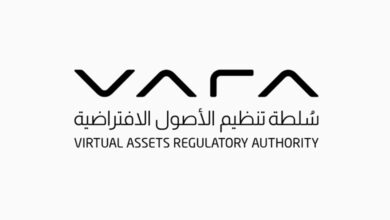VARA’s AML Rulebook V2.0: A Legal Deep Dive into Dubai’s Risk-Based Compliance Era

As Dubai sharpens its position as a globally compliant hub for virtual assets, the Virtual Assets Regulatory Authority (VARA) has introduced Version 2.0 of its Compliance and Risk Management Rulebook. This updated framework ushers in a new era of proactive, risk-based Anti-Money Laundering (AML) obligations for Virtual Asset Service Providers (VASPs).
Following a request from Unlock Blockchain to clarify the latest updates to VARA’s Rulebook, this article was authored by KARM Legal Consultants. It aims to interpret and simplify the technical amendments while preserving their legal and regulatory depth, making them accessible to crypto builders, compliance professionals, and investors in the MENA region
Why It Matters?
VARA’s Mission and the Global AML Push
VARA’s rulebook is designed to align Dubai’s virtual asset ecosystem with international AML/CFT standards. Version 2.0 reflects growing global pressures to strengthen compliance, prevent illicit finance, and integrate emerging technologies into regulatory oversight.
Quarterly Risk Assessments and AI-Specific Screening
A key innovation in the new rulebook is the mandatory frequency of business and client risk assessments. VASPs must now conduct assessments at least once every three months, or immediately following any significant change in operations, technology, or market conditions. The scope has expanded to explicitly include Artificial Intelligence (AI), Money Laundering (ML) technologies, and other emerging risks.
From Risk to Action
How Assessments Must Now Shape Policy
VARA is making it clear that compliance cannot be a paper exercise. The outcomes of risk assessments must now demonstrably shape AML strategies, controls, and resource allocation. VASPs must create a clear audit trail from risk identification to mitigation, subject to VARA scrutiny.
Granular Client Risk Ratings and EDD Requirements
Client-level AML scrutiny has been heightened. VASPs are required to assign risk ratings using defined criteria and take tailored actions based on each client’s profile. For high-risk clients or politically exposed persons (PEPs), Enhanced Due Diligence (EDD) measures are now codified. These include verifying the source of funds and wealth, senior management approval, transaction origination from regulated institutions, and residential address verification.
Suspicious Transaction Reporting Now Streamlined
Suspicious transaction reports (STRs) must now be filed solely with the UAE Financial Intelligence Unit (FIU) via the GoAML platform. While VARA retains oversight through format and guidance requirements, this shift centralizes enforcement under the federal authority, potentially simplifying reporting flows while maintaining accountability.
The Travel Rule Compliance
VARA’s revised rulebook reinforces compliance with the Travel Rule in alignment with UAE Federal AML-CFT laws. VASPs must report on Travel Rule adherence in accordance with both VARA requirements and federal obligations, with VARA retaining the discretion to impose additional reporting and technical standards as needed.
Compliance with Targeted Financial Sanctions
VASPs are now required to screen all clients and transactions against UNSC and UAE sanctions lists using automated, real-time systems. They must immediately freeze assets upon identifying a match, block and prohibit all transactions involving sanctioned individuals or entities, including any attempt to circumvent sanctions, and retain detailed records of all related actions for a minimum of eight years.
Personal Accountability
Senior Management on the Hook
In a significant enforcement development, VARA reserves the right to take action not only against VASPs but also against directors, MLROs, and senior management for non-compliance. This accountability layer places a renewed emphasis on compliance culture within organizations.
Final Thought VARA’s AML Rulebook V2.0
VARA’s AML/CFT reforms under Version 2.0 represent more than incremental changes—they mark a strategic shift toward a preventative and intelligence-driven compliance regime. VASPs operating in or from Dubai must now demonstrate deep alignment with both federal and international standards, supported by advanced technologies, clear documentation, and accountable leadership. Failure to do so is no longer a matter of internal deficiency, but a potential regulatory breach with personal consequences.




